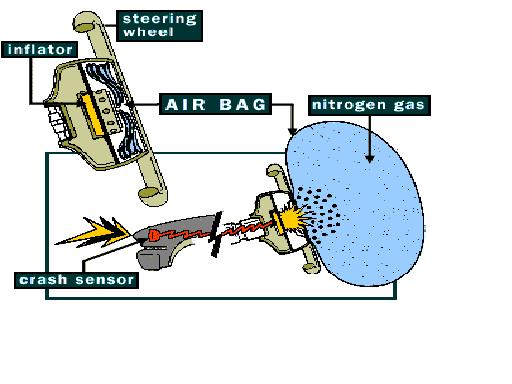|
|
||||||
|
|
||||||
 |
||
Your car hits something in front, decelerating (defined) fast enough to trigger the air bag sensors. The sensors turn a switch that energizes a wire, sending electricity into a heating element in the propellant (defined), causing it to oxidize rapidly. This chemical reaction produces a gas that quickly fills the cloth air bag. As the gas expands, it cools considerably, as predicted by Charles' law (defined). As soon as the bag fully inflates, it starts deflating, cushioning the impact. In less than 1/20 of a second, the bag inflates. The below diagram shows how the above is done: |
||
 |
||